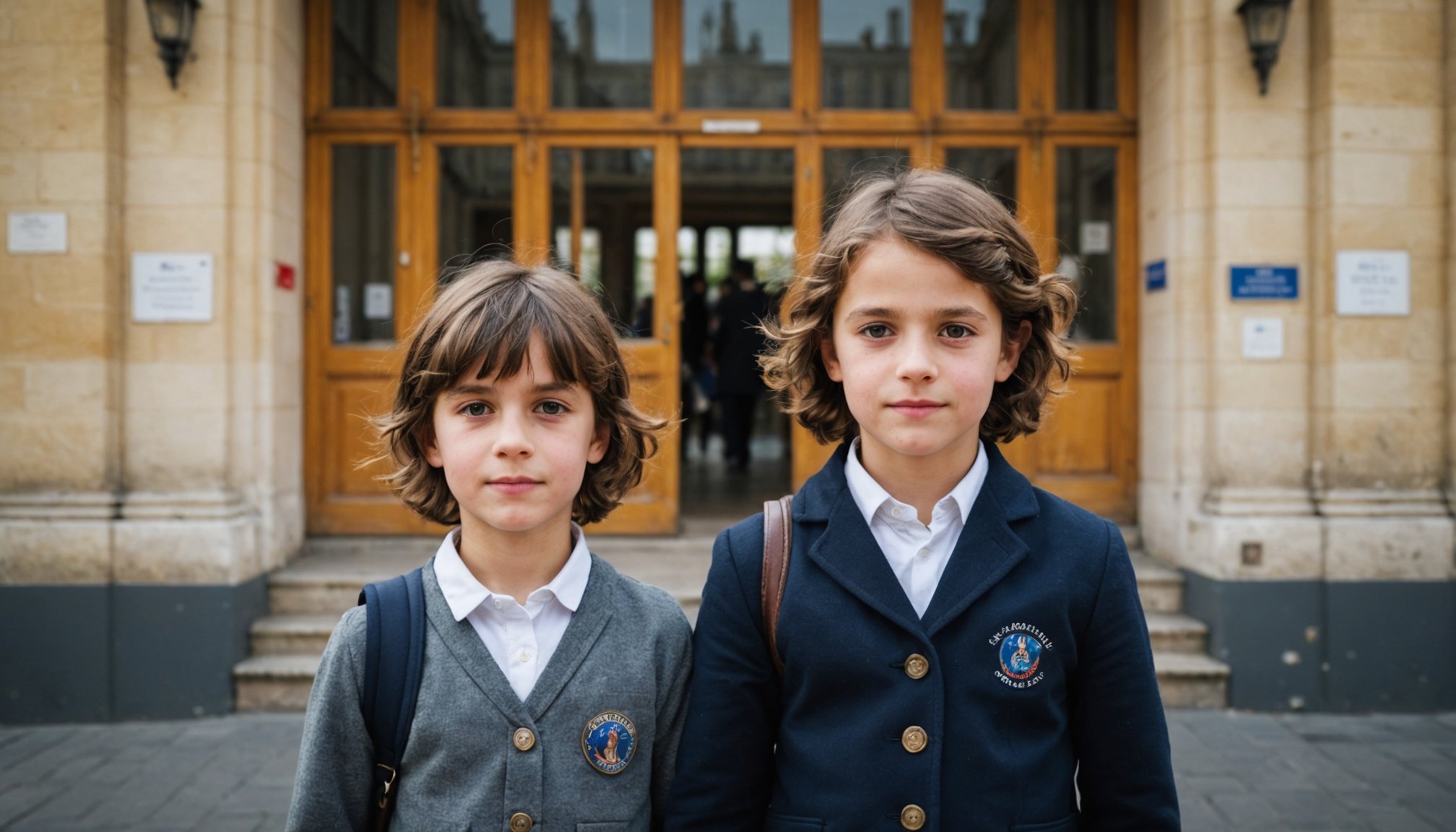Choosing a primary school in Paris, such as Galilée School, involves evaluating several factors. Elements such as the teaching philosophy, the reputation of the establishment, and geographic proximity play an essential role. Other important criteria include extracurricular activities and feedback from parents. This comprehensive analysis will help you make an informed decision, tailored to the specific needs of your family.
Essential Criteria for Choosing a Primary School in Paris
The choice of a primary school is based on several key criteria to ensure a suitable educational environment. A main factor is the school's reputation, which often reflects its academic performance and family satisfaction. Parents can rely on exam success rates or seek feedback from other households. Moreover, it is crucial to determine family priorities, especially in terms of teaching methodology. Some schools prioritize complete language immersion, ideal for rapid mastery of a foreign language, while others adopt a balanced bilingual approach, where several languages are taught simultaneously. The choice depends on the educational goals targeted. Lastly, accessibility plays a significant role; a school close to the home or workplace will allow for better punctuality and increased participation in extracurricular activities. If these elements meet your expectations, do not hesitate to register your child at école Galilée best choice among the paris elementary school, an institution renowned for its excellence and pedagogical commitment.

Importance of Location and Accessibility
Choosing a School Close to Home
Selecting a nursery or primary school close to one's home in Paris is a practical and logistical advantage. Not only does it simplify daily trips for children, but it also promotes their regular school attendance. Several primary schools, public or private, distributed in each district of Paris, allow families to meet their needs. In areas such as Saint-Germain or the 17th district of Paris, the diversity of classes in public and private establishments offers solutions for every situation.
Impact of Accessibility on Attendance
Good accessibility of schools in Paris, in terms of proximity to transportation or direct routes, influences children's involvement and family organization. For example, enrolling a child in a nursery school in Saint maximizes their academic engagement. Well-located nursery and primary classes thus help to limit delays or weariness due to travel.
Evaluating Safety and the School Environment
The nurseries in Paris must also ensure safety and an environment conducive to development. Looking for school facilities in Paris, incorporating protected areas or enjoying quality surveillance, is essential to reassure parents and students.
Considering Extracurricular and Pedagogical Activities
Evaluating Extracurricular Activities
Extracurricular activities play an essential role in the school life of students in Paris. They offer an opportunity to balance academic learning with moments dedicated to discovery and personal development. Parisian schools, whether public or private, often highlight a variety of programs such as reading clubs, scientific workshops, or educational gaming sessions. This allows children to explore different interests while developing important cross-curricular skills.
Importance of Artistic and Sporting Projects
Artistic projects and sports activities also hold a central place in education. Through the Parisian school organization, they contribute not only to the physical development of students but also stimulate their creativity. Painting, dance, or sports tournaments, each Parisian class often incorporates these options to enrich the academic experience.
Impact of Workshops and Clubs on Student Engagement
The workshops and clubs offered in Parisian primary and nursery schools boost students' involvement in their education. These extra-academic opportunities develop a strong sense of belonging and promote self-confidence.
Analysis of Reviews on Galilée School and Other Establishments
Feedback from Parents and Students
Galilée School, located in a Parisian district, receives favorable testimonies from numerous parents. These returns highlight the quality of the teaching provided, the suitable class sizes, and personalized student support. This establishment, known for its solid academic results, integrates modern pedagogical methods promoting a balanced learning experience.
Comparison of Features with Other Schools
Compared with other primary schools in Paris (public and private), Galilée School stands out for its versatile pedagogical approach and enriching extracurricular activities. However, public schools in districts such as Saint Maur des Fossés are also renowned for their efficient school catering and cultural diversity, essential criteria for many families.
Reputation and History of Galilée School
With a long history of integration and academic excellence, the private establishment Galilée positions itself as a quality choice. Its educational impact, secure setting, and innovative management of programs reaffirm it as a benchmark. In the Parisian school landscape, this type of private school represents an option coveted by families.
Socio-economic Criteria and Associated Costs
Structure of Tuition Fees
Private primary schools in Paris have varying tuition fees, influenced by factors such as location and educational offerings. In Paris, private schools often include additional services like school catering and rich extracurricular activities. These costs can increase for parents, particularly in establishments in central districts or those known as versatile. A private school may ask for initial fees, annual fees, and extracurricular costs, varying according to the class levels between nursery and primary.
Implications of Socio-economic Criteria on Choice
Socio-economic criteria play a key role in selecting a primary school among public and private options. Some parents prefer a private primary adapted to their educational expectations, while others opt for the public, favoring lower costs. Parisian districts, including the 7th or 16th, offer a wide range of options, accentuating the weight of income in the educational decision.
